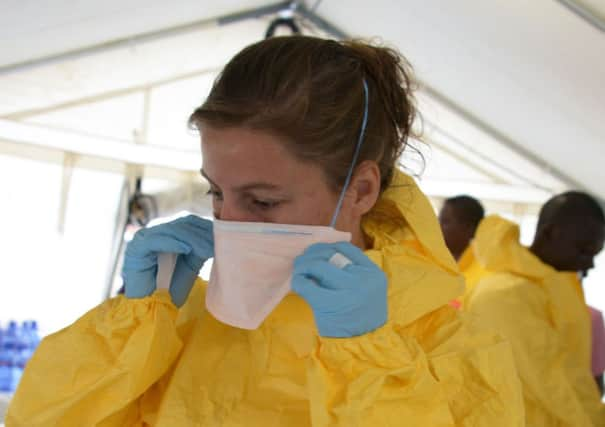Double vaccine may protect against Ebola


Researchers in the United States have reported the results of animal trials which found a double vaccination approach was successful in providing protection against Ebola for almost a year.
The findings are encouraging as researchers, including those based in to the UK, prepare to start tests of vaccinations in humans.
Advertisement
Hide AdAdvertisement
Hide AdIt comes after other promising developments in the battle against the Ebola outbreak, including the treatment of several patients with the experimental drug ZMapp.
These include British citizen William Pooley, who was discharged from hospital last week after being brought back to the UK after contracting the virus while working as a volunteer nurse in Sierra Leone.
But despite these developments, there is still concern that the West African outbreak, which has devastated countries including Guinea, Liberia and Sierra Leone, will be difficult to bring under control without increased international efforts and improved treatments.
Last month it was announced that scientists in the UK, the Gambia and Mali would shortly be starting human Ebola vaccine trials, while testing on volunteers recently started in the US.
In the latest study, published in the journal Nature Medicine, researchers led by Nancy Sullivan at the National Institutes of Health in Maryland, tested out two different vaccines in their trials on macaque monkeys.
One vaccine was based on an adenovirus – a common type of virus – isolated from chimpanzees that had been made non-infectious, and the other a modified cowpox virus.
By combining the two techniques – referred to as the “prime-boost” approach – the researchers were able to protect the animals from lethal Ebola virus infection, even when they were exposed to it ten months after vaccination.
Previous trials have only tested for immunity up to four or five weeks after vaccination.
Advertisement
Hide AdAdvertisement
Hide AdProf Jonathan Ball, professor of molecular virology at the University of Nottingham, said: “The degree of protection seen with the chimpanzee adenovirus alone – which will be used in one of the human clinical trials planned for the UK, Mali and the Gambia – was still pretty impressive, especially when the animals received Ebola virus within a few weeks of vaccination.
“For longer-term protection to prevent future outbreaks, one could envisage using the combination – the so-called prime-boost – approach.
“But a key question will be how well the chimpanzee vaccines perform in regions where we know humans are exposed to chimpanzee adenovirus.
“People in these regions may have antibodies to chimp adenovirus, which could be a hurdle, as these are exactly the areas where Ebola virus is most likely to break out.”